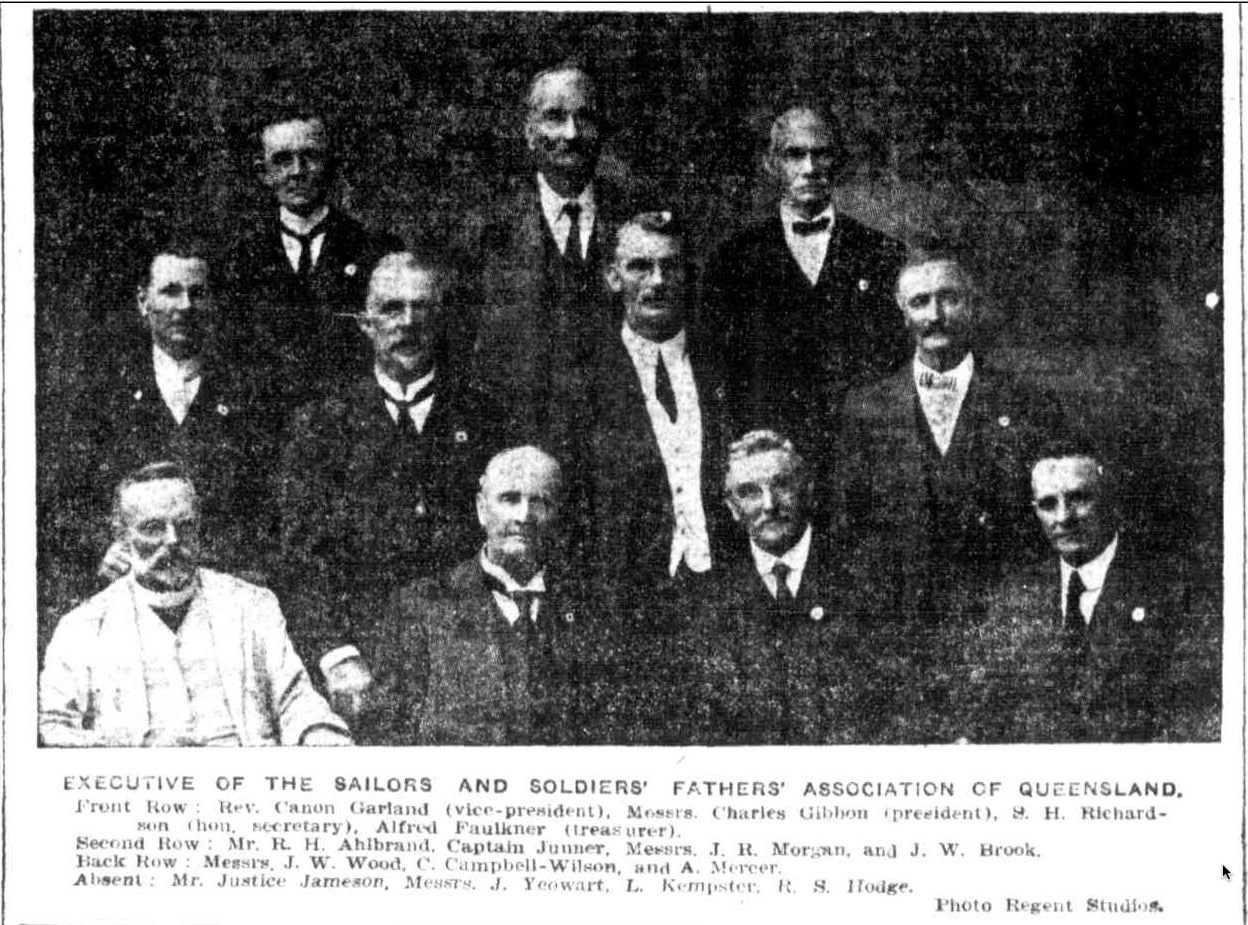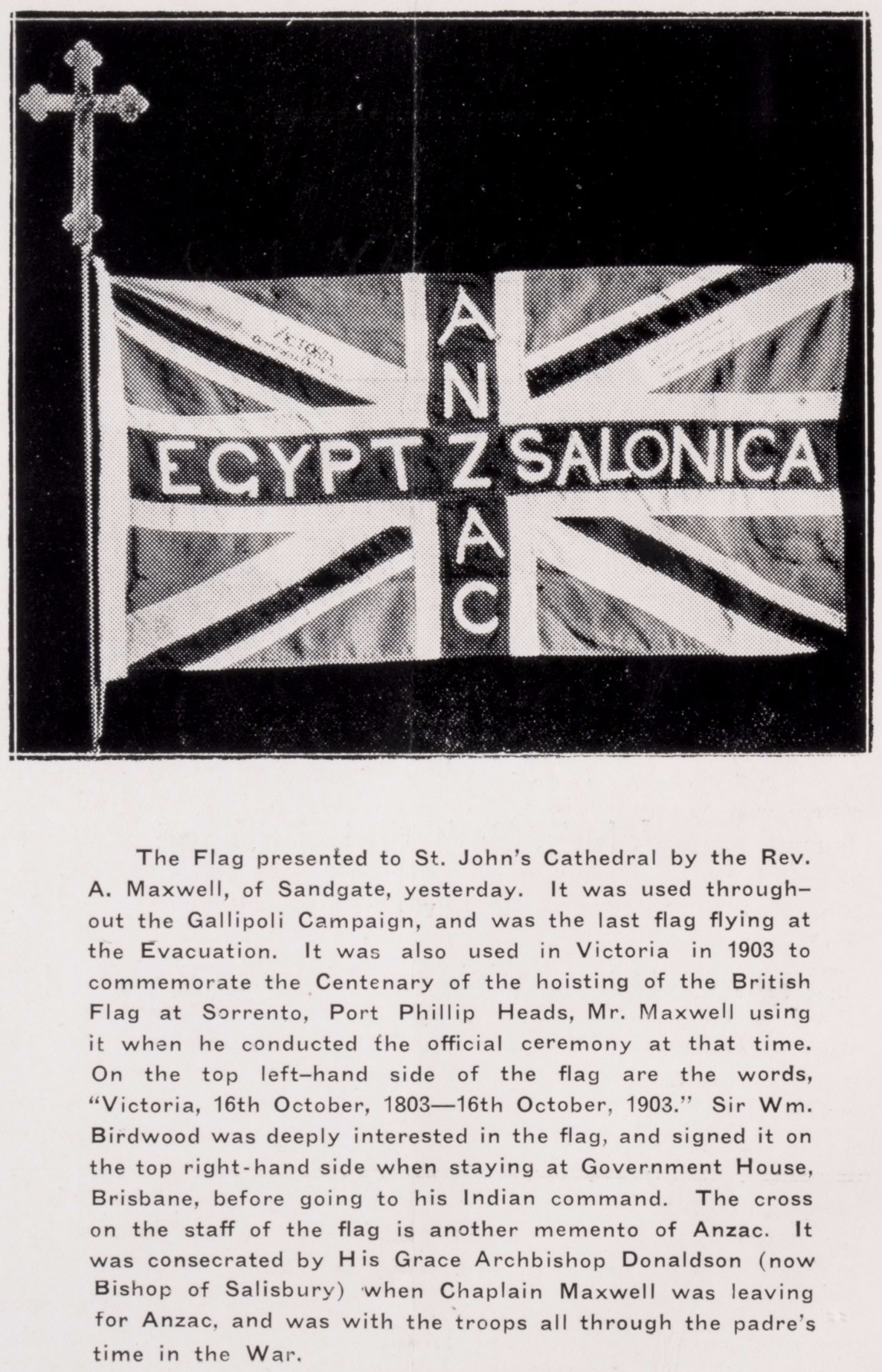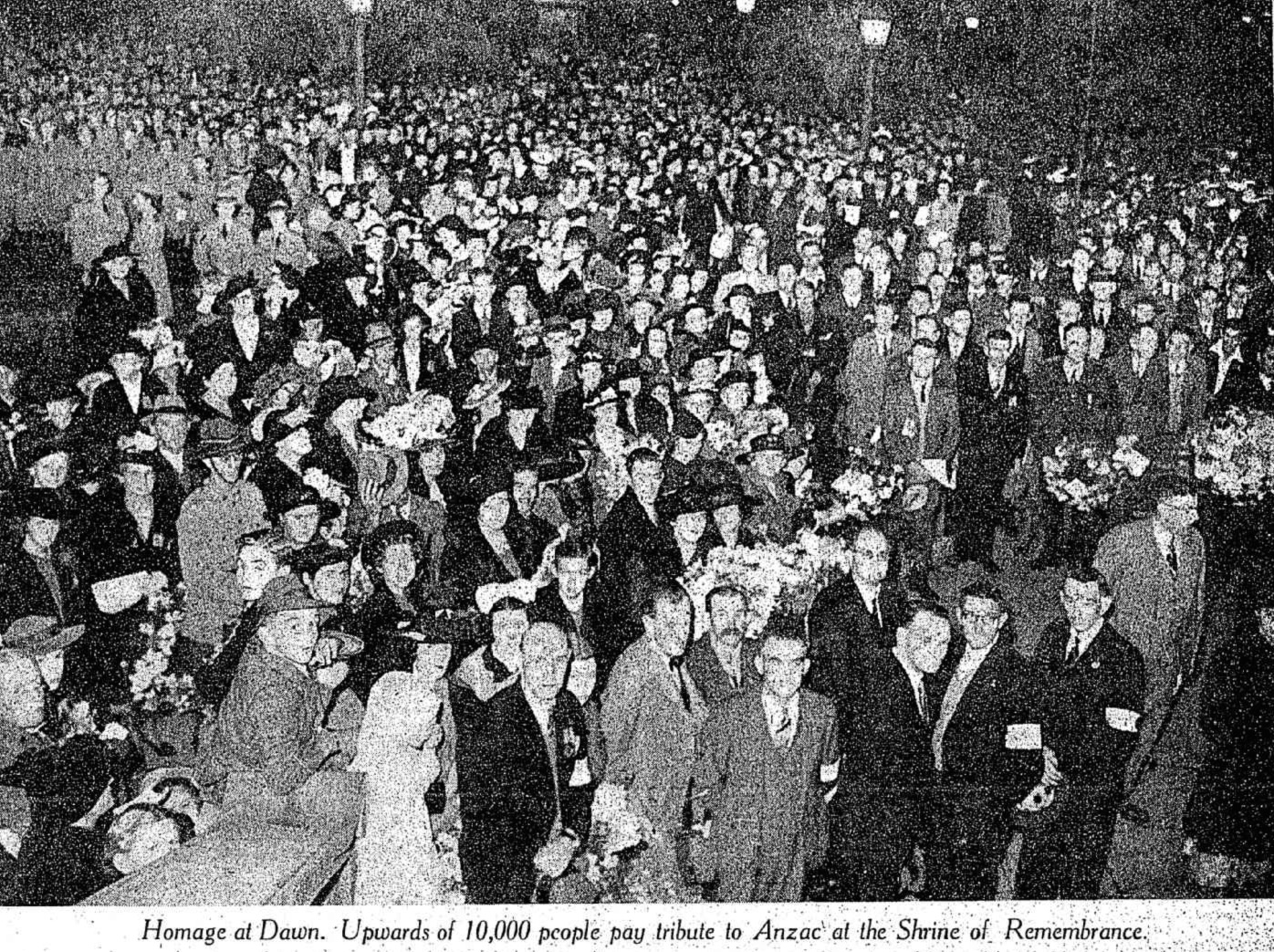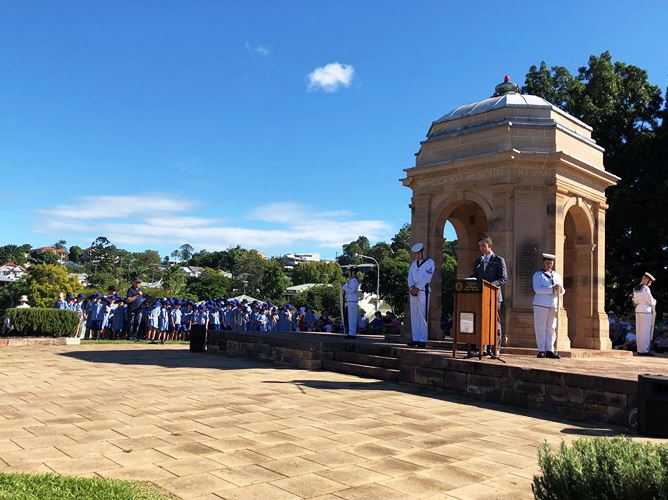ANZAC Day No.7

ABOVE: The executive members of The Sailors’ and Soldiers’ Fathers’ Association of Queensland – one of a string of First AIF-related organisations Canon Garland lent his considerable organisational heft to. This one was personal for Fr Garland – his son David James Garland was a soldier with the First AIF and would enlist again when World War II broke out. This image appeared in Brisbane’s “The Telegraph” on 11 April 1922 (page 10).
At the Churches
ST. JOHN’S CATHEDRAL
Thirteen hundred or more persons crowded into St. John’s Cathedral in the morning [ 25 April 1923 ] for the celebration of the Holy Eucharist in commemoration of those who fell in the Great War.
Not only was every available seat in the sacred edifice occupied, but the aisles and doorways were thronged with worshippers.
Many people were unable to get into the building at all, so dense was the crush.
About 600 returned soldiers and sailors marched in procession from Albert Square to the cathedral, and they were allotted special seats in the centre of the building.
Many war nurses were also present.
Major-General Bruche [ Sir Julius Henry Bruche ] represented the Governor-General, and Brigadier-General L.C. Wilson [ Lachlan Chisholm Wilson ] the State Governor, whilst Lieutenant-Commander Mutton (District Naval officer) [ Edward Smith Mutton ], the Mayor (Ald. H.J. Diddams) [ Henry (“Harry”) John Charles Diddams ], and the Town Clerk (Mr. E.J. Shaw) [ Edwin John Shaw ] were also present.
Archbishop Sharp conducted the service which was of a very impressive character.
Other clergy present were: Canon de Witt Batty [ Francis De Witt Batty ], Minor Canon Simmons [ Hugh Simmons ], Canon H. Gradwell [ Harry Gradwell ], Rev. A. Maxwell [ Alexander Maxwell ] and Rev. Harold Osborn, M.C. [ Arthur Harold Osborn ].
A special sermon was preached by the Rev. Cecil Edwards [ Cecil Howard Edwards ], a returned war chaplain.
“What mean ye by this service?” was the ex-chaplain’s text, taken from Exodus, ch. 12.
“I do not propose,” he said, “that this is an original text to take for an occasion like this, but it fits the occasion.
“Those words were spoken to the children of Israel. They were told to have this service, year in and year out, to commemorate their deliverance from the bondage in Egypt.”
“Are we not holding this service for a similar purpose?” queried the preacher.
“What mean ye by this service? Surely one reason is to commemorate our deliverance from the bondage which to as British people, if the enemy had won, would have been worse than death.
“We commemorate our freedom and deliverance from the hands of the enemy.
“We have another reason, and that is we wish to pay tribute and honour to, and to plead for the souls of, our brothers who gave their lives in order that we might have this freedom; and surely it is a right and fitting thing for us to commemorate and to plead for them in this way.
“We need not speak of Anzac itself, and what it stands for. That is so well known.
“We on an occasion like this go deeper, and think more of the spiritual side of what Anzac stands for.
“When we think of those brothers of ours who gave their lives, some may say, ‘Surely it is not necessary for us to plead their cause before Almighty God? We believe they are in peace and that no torment should trouble them’.
“Yes, but I think that if we heard them speak, they would thankfully say, ‘Carry on. Don’t give up. We need it’.
“You know, I know, that as much as we honour those who gave their lives, it would be foolish for us to say that they were all ready to die. We know that many were not, unfortunately.
“Cannot we then remember them before the throne of God and remember and pray that those sins of the flesh may be blotted out, and that they may he forgiven and their souls may find favour in His sight?”
“They also hold that service for the sake or those who sorrowed for the loved ones taken.
“True, as the years rolled by, the acute pang would be softened.
“They hoped that the time would come when those who had been bent with grief would he able to thank God for the joy that was theirs. Because they would count it an honour in have a son, a brother, or a father who had died in the noblest, way by giving his life for his country.”
Referring to war memorials, the rev. gentleman said it hurt him to know that there was going to be a dance or social to raise funds for our fallen comrades.
“It did not seem right and fit and the fallen soldiers themselves would not have wished it. If they could not have memorials without that, it would be just as well to do without them at all.
“There was also the form some memorials took. Surely the cross, the sign of our redemption, the symbol of unity which sealed the Christian family was the right memorial for us who called ourselves Christians.”
“Some of us,” added the preacher, alluding to the return of the soldiers to civil life, “have been disappointed.”
“When we were fighting the enemy we looked forward to a different people when it was all over.
“We expected that the standard of living would be raised, that selfishness and greed would be done away with, and that we would live for the common good.
“We thought that that would be one of the greatest lesson of that grim struggle. But I do not think we can say our hopes have been realised.”
Appropriate hymns were sung and the organist played “The Dead March in Saul”…
The following appeared in our Second Edition yesterday:-
…“The Last Post” and ex-Trumpeter W.H. Graydon [ William Henry Graydon ], of the 3rd Field Artillery Brigade, the “Reveille”.
The Soldiers’ Church of England Help Society entertained 1,000 soldiers at lunch in St. John’s Cathedral school grounds after the service.
The director of the society (Canon Garland) [ David John Garland ], assisted by members of the executive, received the guests at the entrance gates to the grounds.
Those who assisted in entertaining the men were Mrs. Garland (convenor, Anzac lunch) and Mrs. Marchant (hon. secretary, Anzac lunch), assisted by executive of The Soldiers’ Church of England Help Society — Mrs. W.H. Campbell, Mrs. Philp, Mrs. Le Fanu, Mrs. Donald, Mrs. Bunce, Mrs. Anderson, Mrs. Arkell, Mrs. Gerrard, Mrs. A. Needham (hon. general secretary of the society), Lady Morgan, and members of the society, Mrs. Purssell, Mrs. Tunny, Miss Moseley, Mrs. Gerard Anderson, Mrs. Teale, Mrs. Williams, Mrs. Johnston, Mrs. Morris, Mrs. Arundel, Mrs. Graham Butler, Mrs. Ormerod, Mrs. Burton, Miss Wetherell, Mrs. N. Osborn, Miss L. Smith, Miss R. Markwell, Mrs. Lawrence, Miss Townshend, Miss Yarrow, Miss Chessher, Mrs. Burnett. Mrs. Mogridge, Mrs. Wilson, Mrs. Sorensen and 100 helpers.
– from page 2 of “The Telegraph” of 26 April 1923.


